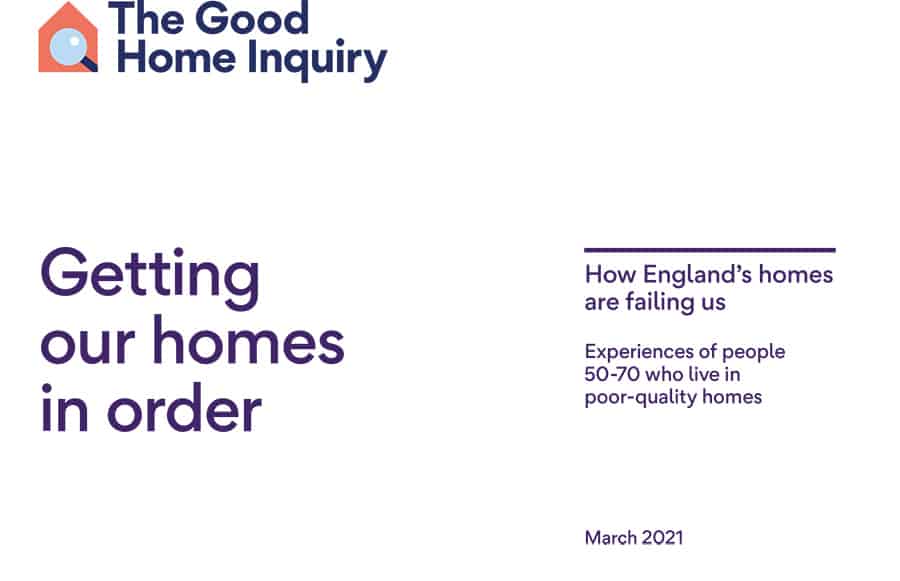Experts say more support is needed to help improve homes and make savings for the NHS

A new investigation commissioned by the Centre for Ageing Better, as part of the Good Home Inquiry, has revealed the damaging impact of homes in poor condition on people in their 50s and 60s.
It suggests that some people put off carrying out vital home adaptations to help them live more safely as they do not see themselves as ‘old enough’ or may not have the available finances.
There are an estimated 4.1 million homes in England that do not meet basic standards of decency and around half of those homes are lived in by someone aged 55 or over. A report last year by Ageing Better warned that those living in cold, damp or poor-quality homes could be at a greater risk from COVID-19.
Now, new analysis from Ageing Better finds that problems such as cold and damp, or fall hazards, are leaving people feeling ‘miserable’ and ‘overwhelmed.’ However, emotional attachments to the home can prevent people from making the changes needed or people don’t see themselves as ‘old enough’ to make adaptations that would help them live more safely.
When people do recognise the need to make changes in the home, they can be put off for a number of reasons. Many do not have the finances available and don’t know where to access support or advice, the charity emphasises.
Experts at the Centre for Ageing Better warn that without support to improve their homes, many face risks to their health and wellbeing.
For this report, 20 participants aged 50 to 70 took part in two interviews and contributed a two-week online diary in which they explored their homes and the problems they faced.
Previous research by the charity found that households headed by someone over 75 are disproportionately likely to be living in a non-decent home, and the problem has worsened for this age group, while two million households headed by someone over 65 find it difficult to heat their home.
A consistently cold home can worsen the impact of many common long-term health conditions particularly experienced by older people, such as arthritis and respiratory conditions, as well as increase the risk of a stroke or heart attack, the report highlights. An estimated £513 million is spent by the NHS on first-year treatment costs for over-55s living in poor housing.
Ageing Better is calling for better access to financing options and accessible information and advice on home improvements. It also says that renters need more confidence to request repairs and adaptations from their landlord – for example through stronger regulation.
The report is part of the Good Home Inquiry, launched last year in order to establish why so many of England’s homes are in poor condition, as well as exploring what is needed in a good home.
Anna Dixon, Chief Executive at the Centre for Ageing Better, said: “A decent home is absolutely fundamental to our wellbeing. And yet too many people are living in homes which don’t meet their needs, or pose a risk to their health or safety.
“This report lays bare the experiences of those living in poor housing, the devastating impact it can have, and the real barriers people face to making improvements.
“There is plenty that can be done to support people to make the changes they need to live safely and comfortably – including timely access to a range of financing options, and accessible information to help them make decisions about improving their home.”


